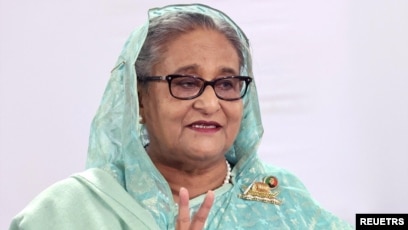
The Bangladeshi interim government, led by Nobel laureate Muhammad Yunus, has formally requested Hasina's return to face judicial proceedings. Touhid Hossain, acting head of Bangladesh's foreign ministry, confirmed that a diplomatic note had been sent to India seeking her extradition. Despite these requests, Indian authorities have extended Hasina's visa, with official sources indicating that she may continue to stay in India.
The situation has strained the historically strong relations between the two South Asian neighbors. India's support for Hasina's Awami League during her tenure adds complexity to the current diplomatic tensions. While the Indian government has acknowledged receiving Bangladesh's extradition request, it has refrained from making any public statements regarding its stance on the matter.
In Bangladesh, public sentiment against Hasina remains intense. Thousands of protesters, led by student groups, have marched in Dhaka demanding her prosecution for alleged involvement in the deaths of hundreds during the July 2024 uprising. The Anti-Discrimination Student Movement has been at the forefront, calling for a ban on the Awami League and urging the interim government to implement a new constitution by January 15.
Legal actions against Hasina are mounting. As of September 2024, she faces 152 cases, including 135 for murder and seven for crimes against humanity and genocide. The Bangladesh International Crimes Tribunal has issued an arrest warrant against her, and her speeches have been banned from publication in the country. Additionally, investigations are underway into allegations of embezzlement involving Hasina and her family members, including her son Sajeeb Wazed Joy and niece Tulip Siddiq, a UK Treasury minister.
The extradition request poses a diplomatic challenge for India. Complying could set a precedent affecting regional politics, while refusal might strain bilateral relations. Analysts suggest that India's decision to extend Hasina's visa indicates a cautious approach, balancing legal considerations with geopolitical implications.
The international community is closely monitoring the developments. Human rights organizations have called for due process and transparency in handling the charges against Hasina. The United Nations has been invited by Bangladesh's interim government to assist in investigating the alleged human rights violations during the protests.
Sheikh Hasina, who served as Prime Minister of Bangladesh for over fifteen years, has denied all allegations, labeling them as politically motivated. Her supporters argue that the charges are part of a conspiracy to remove her from power and undermine the Awami League's political influence.
